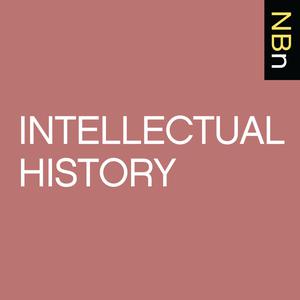
New Books in Intellectual History
New Books Network
Interview with Scholars of Intellectual History about their New Books
- 50 minutes 48 secondsTolkien, Philosopher of War: A Conversation with Graham McAleer
In this episode, we explore the profound philosophical and theological dimensions of J.R.R. Tolkien's work, particularly his views on war. In his book Tolkien, Philosopher of War (Catholic University of America Press, 2024), McAleer uncovers Tolkien's critique of Enlightenment thought and his deep concern with the apocalyptic politics of his time. He argues that Tolkien’s metaphysical, political, and aesthetic views—shaped by a rejection of gnosticism, a defense of monarchy, and a resistance to Futurism—offer a unique perspective on the dangers of progressivism and total war. We explore Tolkien’s personal experience which inform his writings and the processes by which he was able to sculpt these great works and systems of thought. This conversation sheds light on Tolkien's modern critique of political ideologies and offers new insights for readers of Catholic studies, war philosophy, and Tolkien Studies alike.
Madison’s Notes is the podcast of Princeton University’s James Madison Program in American Ideals and Institutions.
Contributions to and/or sponsorship of any speaker does not constitute departmental or institutional endorsement of the specific program, speakers or views presented.
Learn more about your ad choices. Visit megaphone.fm/adchoices
Support our show by becoming a premium member! https://newbooksnetwork.supportingcast.fm/intellectual-history
30 January 2025, 9:00 am - 38 minutes 12 secondsAnand Venkatkrishnan, "Love in the Time of Scholarship: The Bhagavata Purana in Indian Intellectual History" (Oxford UP, 2024)
Where is the "life" in scholarly life? Is it possible to find in academic writing, so often abstracted from the everyday? How might religion bridge that gap? In Love in the Time of Scholarship: The Bhagavata Purana in Indian Intellectual History (Oxford UP, 2024), author Anand Venkatkrishnan explores these questions within the intellectual history of a popular Hindu scripture, the Bhagavata Purana, spanning the precolonial period of the fourteenth to eighteenth centuries in India. He shows that Brahmin intellectuals writing in Sanskrit were neither impervious to the quotidian religious practices of bhakti, nor uninterested in its politics of language and caste. They supported, contested, and repurposed the social commentary of bhakti even in highly technical works of Sanskrit knowledge, and their personal religious commitments featured in a language and genre of writing that deliberately isolated itself from worldly matters. The religion of bhakti bound together the transregional discourse of Sanskrit learning and the local devotional practices of everyday people, though not in a top-down manner. Rather, vernacular ways of being, believing, and belonging in the world could and did reshape the contours of Sanskrit intellectuality.
Venkatkrishnan revisits the historiography of the Bhagavata Purana to expand our knowledge of the many different religious and philosophical communities that interpreted and laid claim to the themes of the text. While most associated with the traditions of Vaisnavism, Love in the Time of Scholarship brings to light how the Bhagavata was also studied by Saivas, Saktas, and others on the periphery of the text's history.
This is an open access title available under the terms of a Creative Commons Attribution Non-Commercial No Derivatives 4.0 International licence.
Learn more about your ad choices. Visit megaphone.fm/adchoices
Support our show by becoming a premium member! https://newbooksnetwork.supportingcast.fm/intellectual-history
30 January 2025, 9:00 am - 1 hour 8 minutesPeter Brian Barry, "George Orwell: The Ethics of Equality" (Oxford UP, 2023)
George Orwell is sometimes read as disinterested in (if not outright hostile) to philosophy. Yet a fair reading of Orwell's work reveals an author whose work was deeply informed by philosophy and who often revealed his philosophical sympathies. Orwell's written works are of ethical significance, but he also affirmed and defended substantive ethical claims about humanism, well-being, normative ethics, free will and moral responsibility, moral psychology, decency, equality, liberty, justice, and political morality.
In George Orwell: The Ethics of Equality (Oxford UP, 2023), philosopher Peter Brian Barry avoids a narrow reading of Orwell that considers only a few of his best-known works and instead considers the entirety of Orwell's corpus, including his fiction, journalism, essays, book reviews, diaries, and correspondence, contending that there are ethical commitments discernible throughout his work that ground some of his best-known pronouncements and positions.
While Orwell is often read as a humanist, egalitarian, and socialist, too little attention has been paid to the nuanced versions of those doctrines that he endorsed and the philosophical sympathies that led him to embrace them. Barry illuminates Orwell's philosophical sympathies and contributions that have either gone unnoticed or been underappreciated. Philosophers interested in Orwell now have a text that explores many of the philosophical themes in his work and Orwell's readers now have a text that makes the case for regarding him as a worthy philosopher as well as one of the greatest Anglophone writers of the 20th century.
Peter Brian Barry is Professor of Philosophy and the Finkbeiner Endowed Professor in Ethics at Saginaw Valley State University. He is the author of Evil and Moral Psychology and The Fiction of Evil as well as several papers in ethics, applied ethics, and social and political philosophy. He has contributed to The Cambridge Companion to Nineteen Eighty-Four, The Oxford Handbook of George Orwell, and George Orwell Studies.
Morteza Hajizadeh is a Ph.D. graduate in English from the University of Auckland in New Zealand. His research interests are Cultural Studies; Critical Theory; Environmental History; Medieval (Intellectual) History; Gothic Studies; 18th and 19th Century British Literature. YouTube channel. Twitter.
Learn more about your ad choices. Visit megaphone.fm/adchoices
Support our show by becoming a premium member! https://newbooksnetwork.supportingcast.fm/intellectual-history
29 January 2025, 9:00 am - 51 minutes 37 secondsVera Keller, "Curating the Enlightenment: Johann Daniel Major and the Experimental Century" (Cambridge UP, 2024)
How did the research universities of the Enlightenment come into being? And what debt do they owe to scholars of the previous era? Focusing on the career of German polymath Johann Daniel Major (1634–93), Curating the Enlightenment: Johann Daniel Major and the Experimental Century (Cambridge University Press, 2024) by Dr. Vera Keller uncovers how late seventeenth-century scholars crafted the research university as a haven for critical inquiry in defiance of political and economic pressures. Abandoning the surety of established intellectual practice, this 'experimental century' saw Major and his peers reshaping fragments of knowledge into new perspectives. Across new disciplines, from experimental philosophy to archaeology and museology, they reexamined what knowledge was, who it was for, and how it was to be stored, managed, accessed, judged, and transformed. Although later typecast as Baroque obstacles to be overcome by the Enlightenment, these academics arranged knowledge in dynamic infrastructures that encouraged its further advancement in later generations, including our own. This study examines these seventeenth-century practices as part of a continuous intellectual tradition and reconceptualizes our understanding of the Enlightenment.
This interview was conducted by Dr. Miranda Melcher whose new book focuses on post-conflict military integration, understanding treaty negotiation and implementation in civil war contexts, with qualitative analysis of the Angolan and Mozambican civil wars.
Learn more about your ad choices. Visit megaphone.fm/adchoices
Support our show by becoming a premium member! https://newbooksnetwork.supportingcast.fm/intellectual-history
27 January 2025, 9:00 am - 1 hour 10 minutesMichael Sonenscher, "After Kant: The Romans, the Germans, and the Moderns in the History of Political Thought" (Princeton UP, 2023)
In this wide-ranging work, Michael Sonenscher traces the origins of modern political thought and ideologies to a question, raised by Immanuel Kant, about what is involved in comparing individual human lives to the whole of human history. How can we compare them, or understand the results of the comparison? Kant’s question injected a new, future-oriented dimension into existing discussions of prevailing norms, challenging their orientation toward the past. This reversal made Kant’s question a bridge between three successive sets of arguments: between the supporters of the ancients and moderns, the classics and romantics, and the Romans and the Germans. Sonenscher argues that the genealogy of modern political ideologies—from liberalism to nationalism to communism—can be connected to the resulting discussions of time, history, and values, mainly in France but also in Germany, Switzerland, and Britain, in the period straddling the French and Industrial revolutions.
What is the genuinely human content of human history? Everything begins somewhere—democracy with the Greeks, or the idea of a res publica with the Romans—but these local arrangements have become vectors of values that are, apparently, universal. The intellectual upheaval that Sonenscher describes involved a struggle to close the gap, highlighted by Kant, between individual lives and human history. After Kant is an examination of that struggle’s enduring impact on the history and the historiography of political thought.
Michael Sonenscher is a fellow of King’s College at the University of Cambridge. His many books include Before the Deluge (Princeton), Sans-Culottes (Princeton), and Jean-Jacques Rousseau.
Morteza Hajizadeh is a Ph.D. graduate in English from the University of Auckland in New Zealand. His research interests are Cultural Studies; Critical Theory; Environmental History; Medieval (Intellectual) History; Gothic Studies; 18th and 19th Century British Literature. YouTube channel. Twitter.
Learn more about your ad choices. Visit megaphone.fm/adchoices
Support our show by becoming a premium member! https://newbooksnetwork.supportingcast.fm/intellectual-history
26 January 2025, 9:00 am - 1 hour 12 minutesUdo Hock, "The Mysterious Messages of the Other: On the Work of Jean Laplanches" (Psychosozial-Verlag, 2024)
Udo Hock's Die rätselhaften Botschaften des Anderen. Zum Werk Jean Laplanches (The enigmatic messages of the other. On the work of Jean Laplanche), came out in 2024 with Psychosozial-Verlag, and collectes nine essays that Hock published over the past twenty years. Published in 2024 to celebrate Laplanche's centennial, these papers are a crucial contribution to Laplanche studies from one of its key actors. Hock is not only a reader and commentator of Laplanche, but also an editor and translator of many of Laplanche's German-language translations. Hock has a real eye for the complexities of Laplanche's work, and he thinks Laplanche together with other thinkers such as Žižek or figures of French Theory. Hock is steeped in French Theory and its milieu, of which he himself has been a member for the past forty years. He proposes to psychoanalysis a shift away from its monothematic anglophilia toward an appreciation of the French schools.
I recommend reading closely these essays to anyone capable of reading German. They open up another Laplanche, the Laplanche of linguistic sublety and conceptual ingenuity. All the while Hock offers critical re-examinations of central psychoanalytic notions through his engagment with Laplanchian concepts such as seduction, mytho-symbolism or the message.
The interview itself has a wonderfully explorative and open-ended quality. Hock really embarked on a journey of thinking, when he spoke of Laplanche, Lacan, Klein, and other other ideas central Laplanche's work. i greatly enjoyed this interview for its meditative quality, for the fact that Hock dwelled on topics, excavating what lies beneath the surface.
Interview conducted by Myriam Sauer (in person, so at times the voices may become a bit silent)
Learn more about your ad choices. Visit megaphone.fm/adchoices
Support our show by becoming a premium member! https://newbooksnetwork.supportingcast.fm/intellectual-history
26 January 2025, 9:00 am - 1 hour 10 minutesRichard Bourke, "Hegel’s World Revolutions" (Princeton UP, 2023)
G.W.F. Hegel was widely seen as the greatest philosopher of his age. Ever since, his work has shaped debates about issues as varied as religion, aesthetics and metaphysics. His most lasting contribution was his vision of history and politics. In Hegel’s World Revolutions (Princeton UP, 2023), Richard Bourke returns to Hegel’s original arguments, clarifying their true import and illuminating their relevance to contemporary society. Bourke shows that central to Hegel’s thought was his anatomy of the modern world. On the one hand he claimed that modernity was a deliverance from subjection, but on the other he saw it as having unleashed the spirit of critical reflection. Bourke explores this predicament in terms of a series of world revolutions that Hegel believed had ushered in the rise of civil society and the emergence of the constitutional state.
Bourke interprets Hegel’s thought, with particular reference to his philosophy of history, placing it in the context of his own time. He then recounts the reception of Hegel’s political ideas, largely over the course of the twentieth century. Countering the postwar revolt against Hegel, Bourke argues that his disparagement by major philosophers has impoverished our approach to history and politics alike. Challenging the condescension of leading thinkers—from Heidegger and Popper to Lévi-Strauss and Foucault—the book revises prevailing views of the relationship between historical ideas and present circumstances
Richard Bourke is professor of the history of political thought and a fellow of King’s College at the University of Cambridge. He is the author of a number of books, including Empire and Revolution: The Political Life of Edmund Burke (Princeton).
Morteza Hajizadeh is a Ph.D. graduate in English from the University of Auckland in New Zealand. His research interests are Cultural Studies; Critical Theory; Environmental History; Medieval (Intellectual) History; Gothic Studies; 18th and 19th Century British Literature. YouTube channel. Twitter.
Learn more about your ad choices. Visit megaphone.fm/adchoices
Support our show by becoming a premium member! https://newbooksnetwork.supportingcast.fm/intellectual-history
25 January 2025, 9:00 am - 1 hour 8 minutesAlan Bollard, "Economists in the Cold War: How a Handful of Economists Fought the Battle of Ideas" (Oxford UP, 2023)
Economists in the Cold War: How a Handful of Economists Fought the Battle of Ideas (Oxford UP, 2023) is an account of the economic drivers and outcomes of the Cold War, told through the stories of seven international economists, who were all closely involved in theory and policy in the period 1945-73. For them, the Cold War was a battle of economic ideas, a fight between central planning and market allocation, exploring economic thinking derived from the battle between Marxist and Capitalist ideologies, a fundamental difference but with many intricacies.
The book recounts how economic theory advanced, how new economic tools were developed, and how policies were tested. Each chapter is based on the involvement of one of the selected economists. It was a challenging but dangerous time in economics: a time of economic recovery post-war, with industrial rebuilding, economic growth, and rising incomes. But it was also a time of ideological warfare, nuclear rivalry, military expansion, and personal conflict.
The narrative is approximately chronological, ranging from the Potsdam Conference in Germany to the Pinochet Coup in Chile. The selected economists include an American, a Pole, a Hungarian, a German, a British, a Japanese, and an Argentinian, all very different economists, but with interconnections among them. Each chapter also features a dissenting economist who held a contrasting view, and recounts the subsequent economic arguments that played out.
Alan Bollard is a Professor of Economics at Victoria University of Wellington, New Zealand. He formerly managed APEC, the largest regional economic integration organization in the world, and was previously the New Zealand Reserve Bank Governor, Secretary of the New Zealand Treasury, and Chairman of the New Zealand Commerce Commission. Professor Bollard is the author of Crisis: One Central Bank Governor and the Global Financial Crisis (Auckland University Press, 2013) and A Few Hares to Chase: The Life and Economics of Bill Philips (Oxford University Press, 2016).
Morteza Hajizadeh is a Ph.D. graduate in English from the University of Auckland in New Zealand. His research interests are Cultural Studies; Critical Theory; Environmental History; Medieval (Intellectual) History; Gothic Studies; 18th and 19th Century British Literature. YouTube channel. Twitter.
Learn more about your ad choices. Visit megaphone.fm/adchoices
Support our show by becoming a premium member! https://newbooksnetwork.supportingcast.fm/intellectual-history
25 January 2025, 9:00 am - 1 hour 27 minutesHélène Tessier, "Laplanche's Vocabulary" (PUF, 2024)
In Vocabulaire de Laplanche (PUF, 2024), edited by the renowned scholar and analyst, Hélène Tessier, several of the key readers of Jean Laplanche's work propose what is nothing short of a revelation for Laplanche studies. Theirs is a vocabulary that provides a concise and accessible dictionary of key Laplanchian terms, inviting readers of Laplanche's work to engage with the French psychoanalyst's work.
In a wide-ranging conversation, professor Tessier delves into Laplanche's work, highlighting the importance of linking/dellinking to his thinking, establishing connections with sublimation and questions of culture and the drives. Tessier embarks on a real tour de force, reconstructing Laplanche's work with the utmost of passion. It was a wonderful conversation that has me ever convinced in stating that this book is a must-have for any Francophone psychoanalyst or scholar of psychonalysis.
Interview conducted by Myriam Sauer.
Learn more about your ad choices. Visit megaphone.fm/adchoices
Support our show by becoming a premium member! https://newbooksnetwork.supportingcast.fm/intellectual-history
24 January 2025, 9:00 am - 54 minutes 1 secondPierre Sokolsky, "The Clock in the Sun: How We Came to Understand Our Nearest Star" (Columbia UP, 2024)
On the surface of the Sun, spots appear and fade in a predictable cycle, like a great clock in the sky. In medieval Russia, China, and Korea, monks and court astronomers recorded the appearance of these dark shapes, interpreting them as omens of things to come. In Western Europe, by contrast, where a cosmology originating with Aristotle prevailed, the Sun was regarded as part of the unchanging celestial realm, and it took observations through telescopes by Galileo and others to establish the reality of solar imperfections. In the nineteenth century, amateur astronomers discovered that sunspots ebb and flow about every eleven years--spurring speculation about their influence on the weather and even the stock market.
Exploring these and many other crucial developments, Pierre Sokolsky provides a history of knowledge of the Sun through the lens of sunspots and the solar cycle. He ranges widely across cultures and throughout history, from the earliest recorded observations of sunspots in Chinese annals to satellites orbiting the Sun today, and from worship of the Sun as a deity in ancient times to present-day scientific understandings of stars and their magnetic fields. Considering how various thinkers sought to solve the puzzle of sunspots, Sokolsky sheds new light on key discoveries and the people who made them, as well as their historical and cultural contexts. Fast-paced, comprehensive, and learned, The Clock in the Sun: How We Came to Understand Our Nearest Star (Columbia UP, 2024) shows readers our closest star from many new angles.
Learn more about your ad choices. Visit megaphone.fm/adchoices
Support our show by becoming a premium member! https://newbooksnetwork.supportingcast.fm/intellectual-history
21 January 2025, 9:00 am - 1 hour 36 minutesRafael Rachel Neis, "When a Human Gives Birth to a Raven: Rabbis and the Reproduction of Species" (U California Press, 2023)
When a Human Gives Birth to a Raven: Rabbis and the Reproduction of Species (U California Press, 2023) investigates rabbinic treatises relating to animals, humans, and other life-forms. Through an original analysis of creaturely generation and species classification by late ancient Palestinian rabbis and other thinkers in the Roman Empire, Rafael Rachel Neis shows how rabbis blurred the lines between humans and other beings, even as they were intent on classifying creatures and tracing the contours of what it means to be human. Recognizing that life proliferates by mechanisms beyond sexual copulation between two heterosexual “male” and “female” individuals of the same species, the rabbis proposed intricate alternatives. In parsing a variety of creatures, they considered overlaps and resemblances across seemingly distinct species, upsetting in turn unmitigated claims of human distinctiveness. When a Human Gives Birth to a Raven enters conversations in animal studies, queer theory, trans theory, and feminist science studies to provincialize sacrosanct ideals of reproduction in favor of a broader range that spans generation, kinship, and species. The book thereby offers powerful historical alternatives to the paradigms associated with so-called traditional ideas.
New Books in Late Antiquity is presented by Ancient Jew Review
Rafael Rachel Neis is Neis is a scholar, writer, educator, and artist. A Professor of History and Judaic Studies, they are Director of the Interdepartmental Program in Ancient History and hold the Jean and Samuel Frankel Chair in Rabbinics.
Michael Motia teaches in Classics and Religious Studies at UMass Boston.
Learn more about your ad choices. Visit megaphone.fm/adchoices
Support our show by becoming a premium member! https://newbooksnetwork.supportingcast.fm/intellectual-history
20 January 2025, 9:00 am - More Episodes? Get the App
Your feedback is valuable to us. Should you encounter any bugs, glitches, lack of functionality or other problems, please email us on [email protected] or join Moon.FM Telegram Group where you can talk directly to the dev team who are happy to answer any queries.
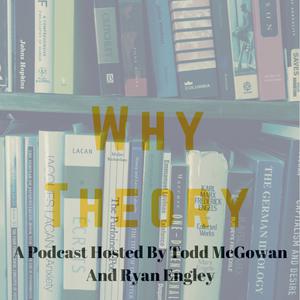 Why Theory
Why Theory
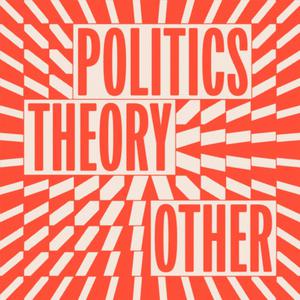 Politics Theory Other
Politics Theory Other
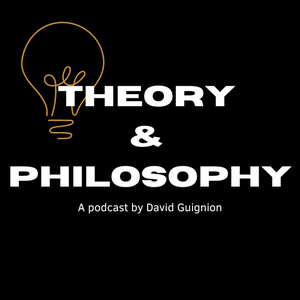 Theory & Philosophy
Theory & Philosophy
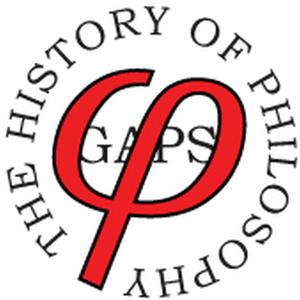 History of Philosophy Without Any Gaps
History of Philosophy Without Any Gaps
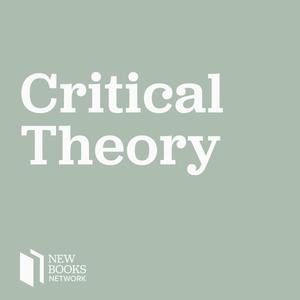 New Books in Critical Theory
New Books in Critical Theory